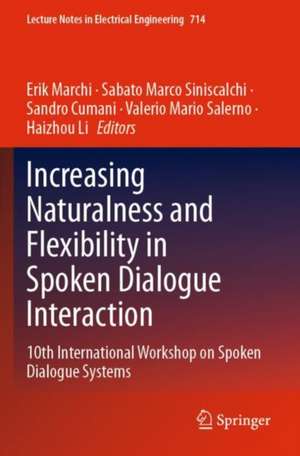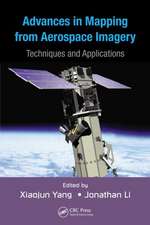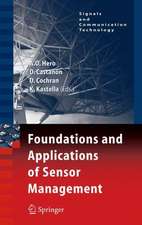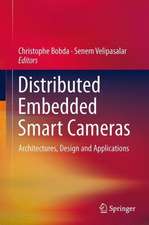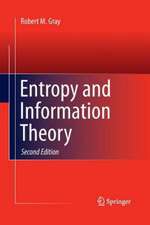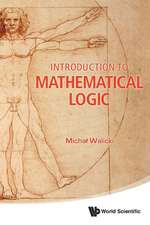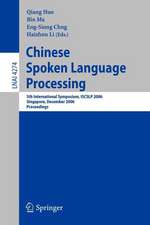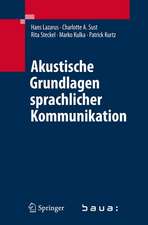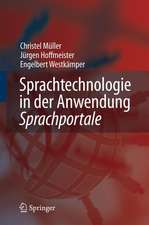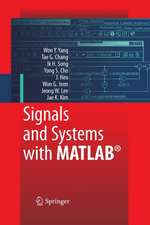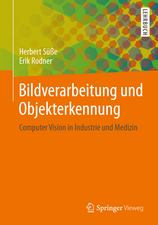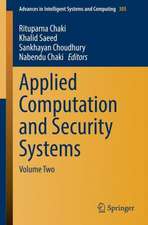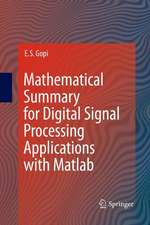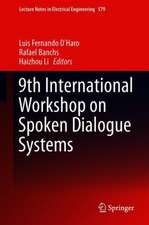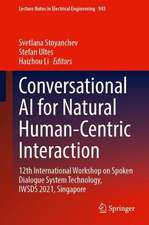Increasing Naturalness and Flexibility in Spoken Dialogue Interaction: 10th International Workshop on Spoken Dialogue Systems: Lecture Notes in Electrical Engineering, cartea 714
Editat de Erik Marchi, Sabato Marco Siniscalchi, Sandro Cumani, Valerio Mario Salerno, Haizhou Lien Limba Engleză Paperback – 12 mar 2022
| Toate formatele și edițiile | Preț | Express |
|---|---|---|
| Paperback (1) | 898.31 lei 38-44 zile | |
| Springer Nature Singapore – 12 mar 2022 | 898.31 lei 38-44 zile | |
| Hardback (1) | 1124.92 lei 22-36 zile | |
| Springer Nature Singapore – 11 mar 2021 | 1124.92 lei 22-36 zile |
Din seria Lecture Notes in Electrical Engineering
- 18%
 Preț: 1859.04 lei
Preț: 1859.04 lei - 18%
 Preț: 895.27 lei
Preț: 895.27 lei - 17%
 Preț: 397.66 lei
Preț: 397.66 lei - 18%
 Preț: 1562.17 lei
Preț: 1562.17 lei - 20%
 Preț: 1473.39 lei
Preț: 1473.39 lei - 18%
 Preț: 5169.60 lei
Preț: 5169.60 lei - 20%
 Preț: 1741.49 lei
Preț: 1741.49 lei - 20%
 Preț: 1918.04 lei
Preț: 1918.04 lei - 18%
 Preț: 1573.20 lei
Preț: 1573.20 lei - 18%
 Preț: 1851.77 lei
Preț: 1851.77 lei - 18%
 Preț: 1578.72 lei
Preț: 1578.72 lei - 18%
 Preț: 1903.08 lei
Preț: 1903.08 lei - 18%
 Preț: 2113.02 lei
Preț: 2113.02 lei - 18%
 Preț: 892.42 lei
Preț: 892.42 lei - 18%
 Preț: 1404.30 lei
Preț: 1404.30 lei - 18%
 Preț: 1133.61 lei
Preț: 1133.61 lei - 18%
 Preț: 1847.84 lei
Preț: 1847.84 lei - 18%
 Preț: 1384.56 lei
Preț: 1384.56 lei - 20%
 Preț: 1300.14 lei
Preț: 1300.14 lei - 20%
 Preț: 1174.76 lei
Preț: 1174.76 lei - 20%
 Preț: 1310.03 lei
Preț: 1310.03 lei - 18%
 Preț: 2546.29 lei
Preț: 2546.29 lei - 20%
 Preț: 1310.03 lei
Preț: 1310.03 lei - 18%
 Preț: 1676.58 lei
Preț: 1676.58 lei - 20%
 Preț: 1182.20 lei
Preț: 1182.20 lei - 18%
 Preț: 1392.46 lei
Preț: 1392.46 lei - 18%
 Preț: 1119.38 lei
Preț: 1119.38 lei - 18%
 Preț: 1678.16 lei
Preț: 1678.16 lei - 18%
 Preț: 1596.85 lei
Preț: 1596.85 lei - 18%
 Preț: 1398.00 lei
Preț: 1398.00 lei - 20%
 Preț: 1445.35 lei
Preț: 1445.35 lei - 18%
 Preț: 1244.89 lei
Preț: 1244.89 lei - 20%
 Preț: 1173.10 lei
Preț: 1173.10 lei - 18%
 Preț: 810.81 lei
Preț: 810.81 lei - 20%
 Preț: 1173.93 lei
Preț: 1173.93 lei - 20%
 Preț: 1482.47 lei
Preț: 1482.47 lei - 20%
 Preț: 1915.57 lei
Preț: 1915.57 lei - 18%
 Preț: 1387.73 lei
Preț: 1387.73 lei - 18%
 Preț: 1425.62 lei
Preț: 1425.62 lei - 20%
 Preț: 1297.67 lei
Preț: 1297.67 lei - 18%
 Preț: 1407.46 lei
Preț: 1407.46 lei - 18%
 Preț: 1667.91 lei
Preț: 1667.91 lei - 18%
 Preț: 1400.35 lei
Preț: 1400.35 lei - 18%
 Preț: 1117.03 lei
Preț: 1117.03 lei - 18%
 Preț: 1573.20 lei
Preț: 1573.20 lei - 18%
 Preț: 1405.90 lei
Preț: 1405.90 lei - 18%
 Preț: 726.37 lei
Preț: 726.37 lei - 18%
 Preț: 1405.90 lei
Preț: 1405.90 lei - 18%
 Preț: 1238.56 lei
Preț: 1238.56 lei - 18%
 Preț: 725.61 lei
Preț: 725.61 lei
Preț: 898.31 lei
Preț vechi: 1181.99 lei
-24% Nou
Puncte Express: 1347
Preț estimativ în valută:
171.95€ • 186.83$ • 144.53£
171.95€ • 186.83$ • 144.53£
Carte tipărită la comandă
Livrare economică 16-22 aprilie
Preluare comenzi: 021 569.72.76
Specificații
ISBN-13: 9789811593253
ISBN-10: 9811593256
Pagini: 453
Ilustrații: X, 453 p. 116 illus., 76 illus. in color.
Dimensiuni: 155 x 235 mm
Ediția:1st ed. 2021
Editura: Springer Nature Singapore
Colecția Springer
Seria Lecture Notes in Electrical Engineering
Locul publicării:Singapore, Singapore
ISBN-10: 9811593256
Pagini: 453
Ilustrații: X, 453 p. 116 illus., 76 illus. in color.
Dimensiuni: 155 x 235 mm
Ediția:1st ed. 2021
Editura: Springer Nature Singapore
Colecția Springer
Seria Lecture Notes in Electrical Engineering
Locul publicării:Singapore, Singapore
Cuprins
Skip Act Vectors: integrating dialogue context into sentence embeddings.- End-to-end modeling for selection of utterance constructional units via system internal states.- Context Aware Dialog Management with Unsupervised Ranking.- Predicting laughter relevance spaces in dialogue.- Transfer Learning for Unseen Slots in End-to-end Dialogue State Tracking.- Managing Multi-task Dialogs by means of a Statistical Dialog Management Technique.- Generating supportive utterances for open-domain argumentative dialogue systems.- VOnDA: A Framework for Ontology-Based Dialogue Management.- Towards increasing naturalness and flexibility in human-robot dialogue systems.- A Classification-Based Approach to Automating Human-Robot Dialogue.
Notă biografică
Erik Marchi is a Machine Learning Researcher in the Siri Speech team at Apple. He received his M.Sc. degree (cum laude) in Electronic Engineering in 2011 from Università Politecnica delle Marche, Italy. From 2012 to 2016, he worked towards his Ph.D. degree (awarded in 2019) as a Researcher in the Machine Intelligence and Signal Processing Group at the Institute for Human-Machine Communication of Technische Universtität München. He is a member of the IEEE/ACM and (co-)authored more than 60 publications (2k citations) in peer-reviewed journals and conference proceedings.
Sabato Marco Siniscalchi is a Full Professor at the University of Enna “Kore”, Italy, and affiliated with the Georgia Institute of Technology (GaTech), Atlanta (GA), USA. He received his laurea and doctorate degrees in Computer Engineering from the University of Palermo, Italy, in 2001 and 2006, respectively. In 2006, he was a Postdoctoral Fellow at the GaTech, and he joined the Norwegian University of Science and Technology (NTNU), Trondheim, Norway, as a Research Scientist from 2007 to 2010. In October 2017, he was on one-year leave from his academic appointment and joined as Senior Speech Researcher at the Siri Speech Group, Apple Inc., Cupertino CA, USA. He acted as an Associate Editor in IEEE/ACM Transactions on Audio, Speech and Language Processing, from 2015 to 2019, and was the recipient of a certificate of merit for outstanding editorial board in April, 2018. Prof. Siniscalchi is an elected member of the IEEE Speech and Language Technical Committee (2019–2021).
Sandro Cumani received the Ph.D. in Computer and System Engineering from Politecnico di Torino in 2012. From 2012 to 2013, he was a Researcher at the Brno University of Technology. In 2013, he joined Politecnico di Torino and is currently an Assistant Professor. His research interests include machine learning, speech processing and biometrics, speaker and languagerecognition. He has (co-)authored more than 50 publications and currently acts as an Associate Editor for IEEE Signal Processing Letters.
Valerio Mario Salerno is a Researcher at the Faculty of Engineering and Architecture, Kore University of Enna, Italy. He received his Bachelor’s degree in Telematic Engineering from the University of Catania, Italy, and both his Master’s degree (cum Laude) in Telematic Engineering and Ph.D. from Kore University of Enna, Italy. He is Guest Editor for the special issue "Internet of Things for Smart Homes” of Sensors. His research interests include neural networks and automatic speech recognition systems.
Haizhou Li is currently a professor at the National University of Singapore. His research interests include automatic speech recognition, natural language processing and information retrieval. Prof. Li has served as the Editor-in-Chief of IEEE/ACM TRANSACTIONS ON AUDIO, SPEECH AND LANGUAGE PROCESSING (2015–2018), the President of International Speech Communication Association (2015-2017), the President of Asia Pacific Signal and Information Processing Association (2015-2016), General Chair of ACL 2012 and INTERSPEECH 2014. Prof. Li has worked on speech and language technology in academia and industry since 1988. He is a Fellow of IEEE and ISCA.
Textul de pe ultima copertă
This book compiles and presents a synopsis on current global research efforts to push forward the state of the art in dialogue technologies, including advances to language and context understanding, and dialogue management, as well as human–robot interaction, conversational agents, question answering and lifelong learning for dialogue systems.
Caracteristici
Pushes forward the state of the art in dialog technologies Offers advances to language and context understanding, and dialog management Includes human–robot interaction, conversational agents, question answering, and lifelong learning for dialog systems
